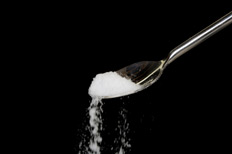Research
August 18, 2011
Americans eat less sugar but still too much

Americans are consuming less sugar than they did a decade ago.
According to a study conducted by Emory researchers, Americans consumed nearly a quarter less added sugars in 2008 than they did 10 years earlier.
But while the study shows that the amount of added sugar Americans are consuming is lower, it doesn't mean the amount is low enough.
The study, published in the American Journal of Clinical Nutrition in July 2011, found that the consumption of added sugars, such as those found in sodas, sports drinks, juices and sweetened dairy products, decreased among all age groups over a decade. The largest decrease came in the consumption of sodas, traditionally the largest contributor to added sugar consumption, according to Jean Welsh, study author and postdoctoral fellow in pediatric nutrition at the School of Medicine.
"While we were hopeful this would be the case, we were surprised when our research showed such a substantial reduction in the amount of added sugar Americans are consuming," says Welsh. "We're hopeful this trend will continue."
So, why the change? Study partner Miriam Vos, assistant professor of pediatrics, attributes much of the shift to public education.
"Over the past decade, there has been a lot of public health awareness about obesity and nutrition, and I think people are starting to get the message about sugar," says Vos. "We're not trying to send a message that sugar is inherently bad. It's more that the large amounts of sugar we consume are having negative effects on our health, including increasing our risk of obesity, diabetes and cardiovascular disease.
"The American Heart Association recommends that we get about five percent of our calories from added sugars," says Vos. "In 1999 to 2000, people were consuming about 18 percent of their calories from added sugars. Over 10 years, that amount decreased to 14.5 percent of our daily calories, which is much better. But, clearly, 14.5 percent is still three times more than what is considered a healthy amount. We're on the right track, but we still have room for improvement."
